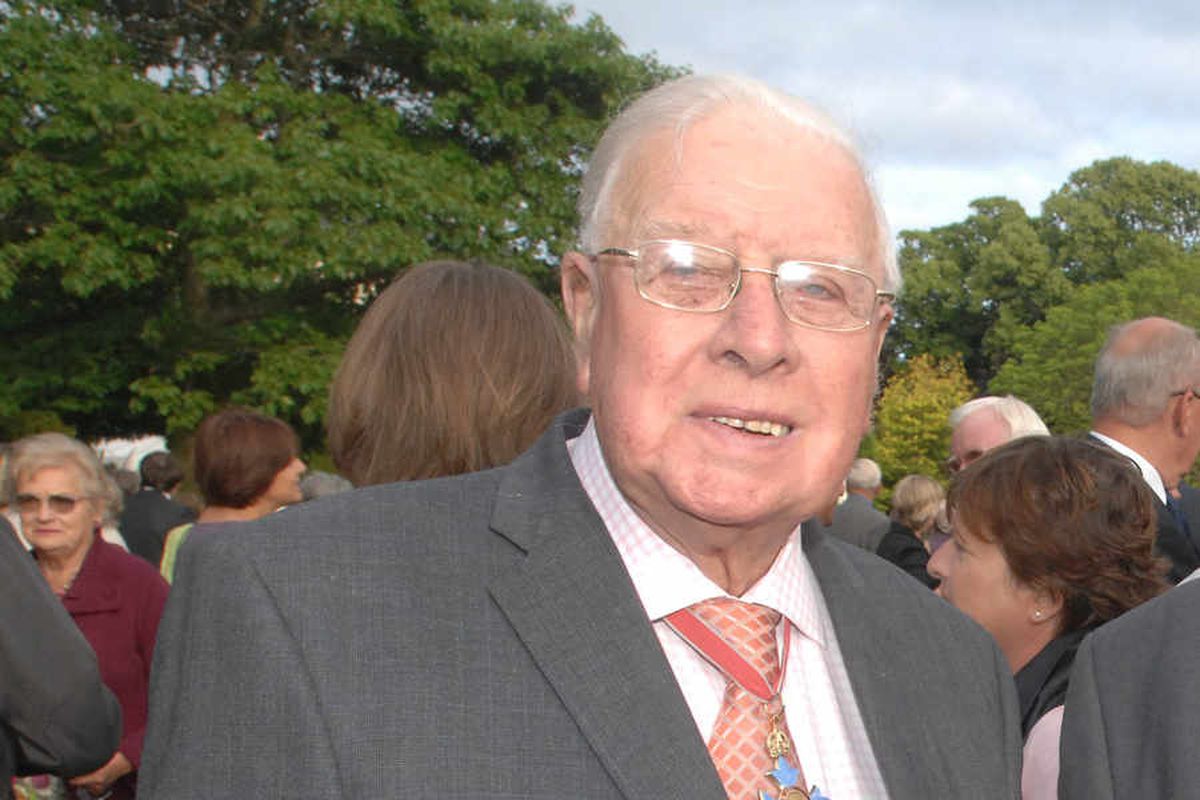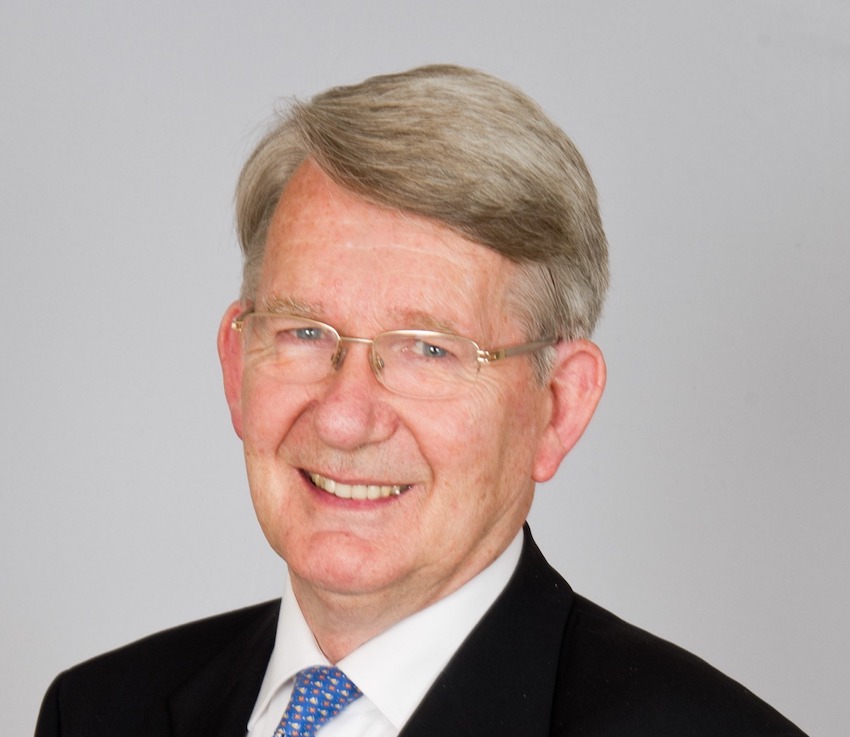(THIS ARTICLE IS MACHINE TRANSLATED by Google from Norwegian)
January 1996,
Saint Helier, Jersey
A BETTER TRANSLATION WILL APPEAR SOON!<br><br> It started with a call from London at half past ten one evening in January. Michèle picked up the phone: “It's a Wall Street Journal journalist. His name is Michael Sesit. "
It was not uncommon for journalists to call me at home in the evening. I was a civil servant, and talking to journalists was part of the job. But Sesit did not ask for comment. He investigated a crime and believed that my ministry was involved.
Sesit's story was fair enough: A Jersey-based bank called Cantrade Private Bank – a subdivision of Switzerland's largest bank, Union Bank of Switzerland (UBS) – had apparently violated federal US law by collaborating with the currency company Anagram in Jersey. They had defaulted on customers' accounts (so-called churning), embezzled and behaved falsely. 84 investors had filed a class action lawsuit against the bank and the currency trader, but for two years had only met with opposition from regulatory and legal authorities, who trained the case.
Sesit's question to me was simple: How could Robert John Young, Anagram's director and sole employee, resident in the United Kingdom, have been allowed to rent an apartment in Jersey on the grounds that he was considered an 'important employee', as required by Jersey's tenancy law? According to Sesit, such permits were strict, intended to restrict immigration. Cases with "important employees" were negotiated with the employers' organizations via my office.
He could also tell that the Jersey Finance and Finance Committee, with responsibility for the relevant officials and offices for business operations and rent legislation, was the granting body for applications from immigrants for rental of residential properties on the island. The committee had refused to cooperate with the plaintiffs' lawyers. Sesit said that despite requests from more than 80 investors who claimed to be victims of criminal currency trading between Anagram and Contrade, the finance committee had refused to investigate the bank's role.
he thought I was involved in a larger conspiracy to obscure the investigation.
Sesit's story shocked me.
The name Robert John Young was unknown to me, and I had no idea that the bank Cantrade was involved in any suspected fraud. Saint Helier is a small place in Jersey, and my office was in the heart of the state apparatus, so Sesit thought it unlikely that I would be able to answer his questions. He stated bluntly that he thought I was involved in a larger conspiracy to obscure the investigation. We agreed that I would look at the case files the next day. If this strengthened his suspicion, I promised to give him honest answers. We agreed that he would call me twenty-four hours later.
Charged with fraud
Early the next morning I was in the office to check the case files. To my dismay, they confirmed Sesit's story. No background check was performed by Robert John Young. Anagram's license to conduct business without a local director resident in Jersey was irregular and a clear violation of the guidelines for such activity.
Young's permission to rent housing with reference to the category «important employees» in the Housing Act went against prevailing policy, as Young was an independent currency trader and not employed by any major bank or financial operator.
A convicted fraudster, known to the British authorities, had been granted a license to conduct currency trading
The more I dug into the case, the worse it got. The chairman of the finance committee and responsible for the island's regulatory authority, Senator Pierre Horsfall, had been director of the Contrade Bank from 1987 to December 1990 – a period with many cases of currency trading fraud. Senator Reginald Jeune, president of the island's policy and resources committee, and de facto Jersey's prime minister, was also a partner in the law firm Mourant du Feu & Jeune, which represented Contrade and UBS in negotiations with the island's regulatory authorities.
The morning after Sesit called, I contacted an acquaintance of the Financial Services Authority (FSA, now the Financial Conduct Authority) in London and made an informal inquiry about the background check of Robert John Young.
Then I contacted the registration office and the housing office. The latter was able to confirm that all the applications had been processed by Jersey's chief adviser Colin Powell, the island's senior civil servant.
The FSA called me back two hours later to confirm that Young had previously been charged with fraud and to have given misleading information to investors. Had the guidelines been followed with a background check, it would have been inappropriate to grant him a license to conduct currency trading in Jersey.
What makes tax havens different from other criminal networks is that politicians and authorities, including leading actors in the judiciary, are involved in criminal practices as revealed in the 2016 and 2017 Panama and Paradise Papers leaks

The tax haven Jersey
The small island of Jersey has dominated the world's financial services in the offshore market since 1970. On the Financial Secrecy Index (2018), Jersey was among the top 20. In 2019, Jersey was among the top ten in the Tax Justice Networks (TJNs) tax haven index. TJN ranks the world's tax havens when it comes to their openness about tax fraud. The Index of Financial Secrecy ranks the legislation on countries' openness about hidden foreign transactions. See also www.taxjustice.net The combination of pettiness and tax havens is entirely dependent on a strict, statutory secrecy that since 1970 has promoted a comprehensive, hidden sphere – as extensive as any mafia network secrecy – with strict secrecy laws.False information to investors
At lunchtime I had received enough information to be able to confirm that what Sesit had said the night before was correct. A convicted fraudster, known to the British authorities, had been granted a license to conduct currency trading in Saint Helier. He had been allowed to rent a home despite the fact that he did not meet the requirements of the Housing Act. He had given false information to investors.
When investors discovered they had been defrauded for millions of dollars, Jersey's financial authorities had refused to investigate the fraud. Instead, they had asked Cantrade's auditor Coopers & Lybrand (now part of PricewaterhouseCoopers – one of the "big four" auditing firms) to conduct a limited review of the bank. Admittedly, they failed to issue directives on the "content, direction, type and scope" of the review.
Before I went to lunch, I stuck my head in the door of Chief Counsel Colin Powell's office to tell him that I had discussed the Young / Contrade case with a Wall Street Journal journalist. He immediately faded, and his voice cracked.
I went home to talk more with Michèle. Sesit called for the second time that evening, and we agreed to collaborate on further investigations.
Investors were also not told that the trader had an agreement to share the profits with the Swiss bank that took care of their money.
Our home was searched

Michael Sesit spent two days in Jersey interviewing Powell and Pierre Horsfall. My job was precisely to work with international media requests, so that this was something I could do without violating the strict official rules of confidentiality. Nevertheless, my open collaboration with investigative journalists and thus broke omertàen – that the temperature in the department rose to a dangerously high level. Leading politicians excluded me from conversations I would otherwise naturally engage in, and Powell attacked me every time he had the opportunity. On the way to the office one morning, I was told by a colleague at the Attorney General's office that a power of attorney was being issued to search our home. Everything was done to force me to retreat.
Eight months later, Sesit's article was published in the Wall Street Journal. The headline read: "Offshore gambling: Jersey not exactly heaven for foreign investors" and was devoted to one column on the front page, two more on the next page, and four on page 8, in both the European and American editions of the newspaper. The introduction to Sesit was as follows:
"This is something other than an unfortunate case of funds. Instead of being warned of increasing losses by the currency trader who handled their money, investors were given reports of sustained growth. Investors were also not told that the trader had an agreement to share the profits with the Swiss bank that took care of their money. "
In addition to currency fraud, the article also described the role mix of leading politicians who were also directors of banks for which they had regulatory responsibility:

«Mr. Horsfall was Cantrade's director from 1986 to 1990. Former chairman of the Finance and Finance Committee, Reg Jeune, is a consultant and former partner in Cantrade's law firm. Both are senators in Jersey's parliament. This type of dual role with politicians, regulators and bank directors is common in Jersey. Five years ago, Senator Jeune sat on the board of 36 companies while chairing Jersey's most powerful parliamentary committee, government documents show. "
For many Jersey residents, such a conflict-filled role mix was normal. The article continues: "Senator Jeune says that despite the fact that he really thinks people who represent the controlling authority should not sit on the board of financial institutions, 'the conditions on the island are open and transparent. It's a small island where everyone knows what everyone is doing, so you have never felt the need to change things. '

But that was not the case. I had repeatedly criticized these conditions, as financial adviser and secretary of the island's working group for the regulation of financial services. And I knew many officials who thought the same thing. I had also been critical of whether people like Horsfall and Jeune were competent to regulate international banks. The Wall Street Journal article quotes an official in the last paragraph:
"Jersey is governed by a group that, although a social and economic elite on the island, is largely small business owners and farmers who suddenly sit and regulate a multi-billion dollar industry. "By and large," says the official, "they are in very deep water."
I was the anonymous official in Sesit's article, and the island's leading politicians and officials, including Colin Powell, were aware of this. In fact, the Wall Street Journal (WSJ) article was my resignation. Jersey is a small island where whistleblowers had nowhere to hide. And the duty of confidentiality, omerta, stuck deep.
Media storm
On the morning of September 17, 1996, I sat in the office and worked quietly while the media storm raged in the corridors outside. For decades, the island had avoided international scandals, but today's front page of the Wall Street Journal was impossible to explain away. A major scandal would affect leading politicians and officials, and no public relations apparatus was established to deal with such a reputation nightmare. And apparently no one knew what to do.
The island had managed to build up an undeserved reputation as an honest financial operator. But the following quote from a follow-up article in WSJ suggests something else:
"The crucial thing is that Jersey has so far failed to act as a good regulator and that international investors have not received the protection they could reasonably expect from an established financial center," said a senior official.
While consultants were urgently called from London to give advice in the dark PR arts, I sat in the office waiting for the ax to fall.
In the following weeks, the situation worsened. The Observer, one of the UK's leading Sunday newspapers, published a lengthy article that spanned the WSJ's revelations. They quoted John W. Moscow at the New York prosecutor's office as saying:
"I have experienced, with both Jersey and Guernsey, that it has not been possible for the US authorities to gather evidence to report crime. In a case where we tracked money from the Bahamas through Curaçao, New York and London, the paper tracks in Jersey stopped. "
Moscow's comments shattered the Jersey government's claim that it was transparent and cooperative in its dealings with regulators and investigators from other countries. He also torpedoed the claim that Jersey came out well compared to other offshore financial centers: "It is unacceptable that these UK areas operate as bases for transactions that would not even be protected by the secrecy requirements of Swiss banks."
The story spread in international media: "Jersey's government embroiled in banking scandal" (The Observer); "Scandal Shakes Jersey" (Offshore Financial Review); "Doomsday prophets gather around the island" (Financial Times) etc.
While consultants were urgently called from London to give advice in the dark PR arts, I sat in the office waiting for the ax to fall.

Press to resign
It was not until mid-October, a month later, that Colin Powell visited me in the office. Did I have plans to resign? he wanted to know. I reminded him that I was a full-time employee and that I had kept him informed of Wall Street Journal requests. Had he plans to resign? I asked, pointing out that the Wall Street Journal article claimed that he was responsible for "maneuvering Young's housing application through the bureaucracy and giving the reasons for licensing him to trade currencies."
Powell knew that I had acted in full accordance with my role as financial advisor and could not be fired. I, for my part, knew that Powell and others could turn my life into a real hell – there are few who act more rowdy than the powerful British elite when confronted with their own mistakes. I had prepared to leave, but it had to be on my terms. Michèle had given birth to our second son, Elliot, just a week before the confrontation with Powell, and I saw no reason to hurry.
I resigned fourteen months later, in January 1998, and left the island with my family after serving six months' notice.
I have learned a lot from working to reveal what is happening in tax havens, and with confidentiality legislation from within:
First, you can not expect sympathy from colleagues or management. Some will be able to sympathize with you "in principle", but they will never risk the job for your cause. Sharing concerns with department management is not always possible. In my case, this was doomed to fail, since Colin Powell filled both roles. Colleagues do not have to be personally involved in corruption, but may have been drawn into what has been going on, and may be uninterested in asking unpleasant questions about customers' plans.
Secondly, you must expect crude treatment from employers whose work model is to be kept secret. They will use extreme methods to punish you and to warn others against doing something similar to what you have done. At the very least, you must expect that you and your family, perhaps even your friends, will be ostracized – and take the consequences that it is not possible to get a new job.
EU laws for whistleblower protection of 2019 MUST be introduced in all tax havens and areas with confidentiality laws, and they must apply in all territories.
Thirdly, it is naive to believe that the police and authorities in tax havens will do anything other than close their eyes to financial offenses – they know that their opportunities for promotion depend on giving the impression of being active, but at the same time doing the least possible. They want to do a number of exposing drug trafficking or financing terrorist activities, but otherwise they will close their eyes to everything that is going on.
The same goes for local media. They are usually caught up in the reliance on advertising dollars from local banks and law firms.
And finally, you can expect the distance between you and most of your relatives and former friends and acquaintances to increase. Most will keep a low profile, and only a minority will understand that you have put responsibility and principles before personal promotion and secure income. A London correspondent for Le Monde had been told by a Jersey man that I was a "traitor": the Jersey man was my brother.
What can be done to fight back against this culture of silence, the omertà?
Firstly, the EU laws for whistleblower protection of 2019 must be introduced in all tax havens and areas with confidentiality laws, and they must apply in all territories. Post-Brexit Britain must be forced to adopt similar legislation. This could be one of many demands placed on British banks or law firms seeking access to Europe's financial markets.
The financial sector will need financial incentives to motivate internal whistleblowers. Ideally, one would have to rely on taxes directed directly at the sector. Reward for notification must be given directly to the notifier to secure the person's financial future.
Non-profit organizations working to secure whistleblowers should look at the need for whistleblowers in the financial sector, and especially in tax havens and small island states. Such places rarely have any well-developed civil society that can provide support, which means that whistleblowers do not receive help against revenge and character assassinations.
And finally: Digging journalists need to dig deeper into the practices of banks, lawyers and tax advisers. Their practices have made global corruption possible. They must work closely with whistleblowers to expose lax professional practices and practices that open the door to corruption. The whistleblowers must be recognized as what they are: heroes at the forefront of the fight against destructive and destructive forms of corruption.
This is an abbreviated chapter from an upcoming book from Springer Press by the head of the Tax Justice Network, John Christensen. Reprinted with permission.



